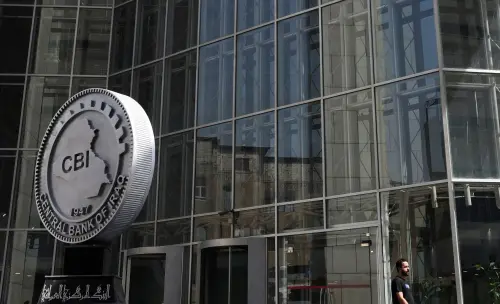Iraq's Central Bank is set to prohibit five local banks from conducting U.S. dollar transactions, following discussions with U.S. Treasury officials to combat money laundering, dollar smuggling, and other violations. According to sources familiar with the matter, meetings held in Dubai last week between Central Bank of Iraq representatives and U.S. Treasury and Federal Reserve officials led to this decision.
As a pivotal player balancing relationships with both the United States and Iran, Iraq, with over $100 billion in reserves held in the U.S., heavily relies on Washington to ensure uninterrupted access to oil revenues and financial activities. This move comes in light of U.S. President Donald Trump's recent announcement to intensify pressure on Iran, potentially impacting Iraq, which is often seen as a strategic economic partner by Iran.
Iraq's neighbor and ally, Iran, exerts significant military, political, and economic influence in the region. Through Shi'ite militias and political parties it supports, Iran uses Iraq as a crucial economic channel to evade U.S. sanctions and secure hard currency. The landscape in Iraq has further evolved with the revelation of an elaborate fuel oil network benefiting Iran and its proxies.
Although the sanctioned banks can continue operating and conduct transactions in other currencies, the restriction on dollar transactions may affect their ability to carry out international transactions smoothly. This move signals efforts to combat money laundering practices prevalent in Iraq's financial sector.
The current Iraqi administration, supported by Iran-linked groups, is under scrutiny for its engagement in Iraq's shadow economy. Despite initial positive reception for economic reforms under Prime Minister Sudani to limit Iran's access to U.S. dollars, increased pressure is expected from the Trump administration.
The five banks affected by the ban are Al-Mashreq Al-Arabi Islamic Bank, United Bank for Investment, Al Sanam Islamic Bank, Misk Islamic Bank, and Amin Iraq for Islamic Investment and Finance. Additionally, three payment services firms, Amawl, AL-Saqi Payment, and Aqsa Payment, were included in the prohibition.
Queries to the Central Bank of Iraq and the U.S. Treasury for comment went unanswered at the time of reporting.
